Now that high-fat or high-protein diets are popular, it may seem like you have carte blanche to load up on red meat. However, regardless of what type of eating plan you’re following, red meat is still higher in saturated fat compared to leaner cuts. And while not all experts agree that saturated fat intake increases heart disease risk, research from Harvard Medical School suggests the key to protecting your heart is to eat less saturated fat and more polyunsaturated fats.
For that reason, it’s smart to limit red meat and make leaner proteins your mainstay. Try adding more of these high-protein foods to your diet, which can help you feel full longer, build muscle and aid weight loss:
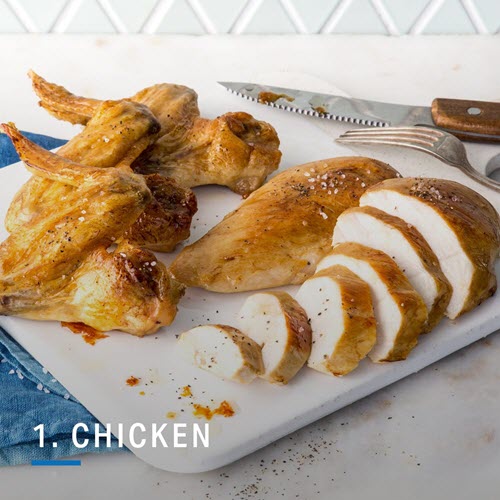
It’s no surprise chicken is one of the top-logged foods on MyFitnessPal. A 3.5-ounce chicken breast has 31 grams of protein and 165 calories. Red meat (for instance, a top round cut) also has 31 grams of protein but 204 calories per serving.
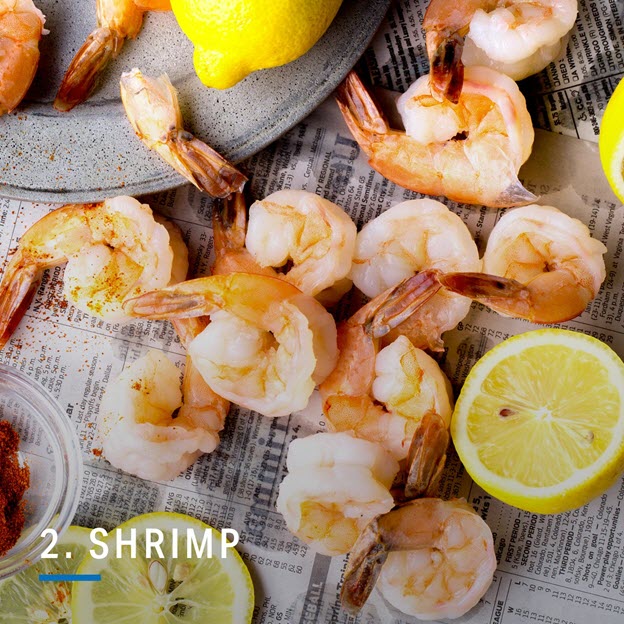
A 3.5 ounce serving of cooked shrimp offers 20 grams of protein but just one gram of fat for 93 calories. When grocery shopping, look for U.S. farmed shrimp, which was rated as a “best choice” in terms of sustainability from the The Monterey Bay Aquarium’s Seafood Watch program.
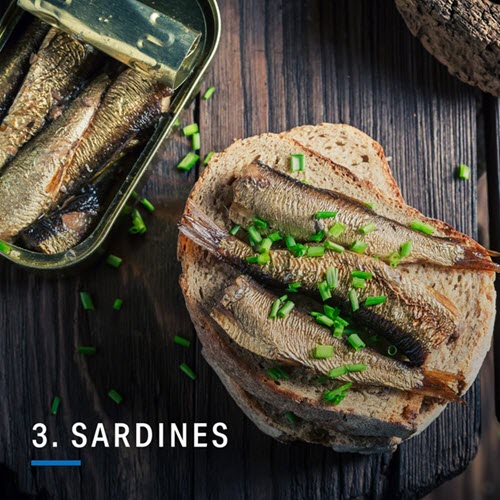
These small fish are often overlooked but they pack a big punch when it comes to flavor and protein. You can buy them fresh and throw them on the grill. Or pick up a can, which you’ll find in flavors like lemon and olive oil if you’re nervous about the taste. One can offers 26 grams of protein. As an oily fish, sardines are a great source of heart healthy omega-3 fats. Try making them for lunch like you would tuna salad.
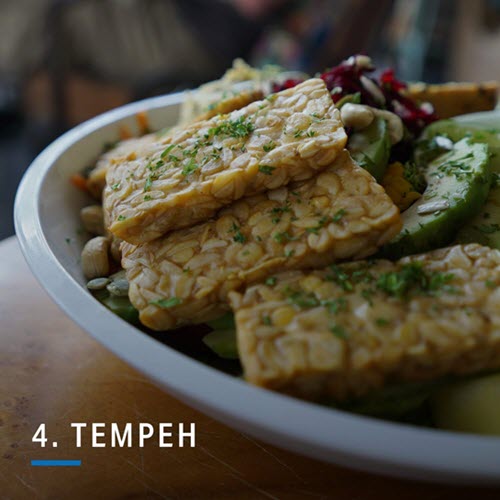
When it comes to soy protein, you’re likely already familiar with tofu. Tempeh is similar and it’s made from fermented, cooked soybeans. Tempeh is a complete protein, meaning it contains all nine essential amino acids. A 3.5-ounce serving has 20 grams of protein and it’s a great substitute for meat in sandwiches.
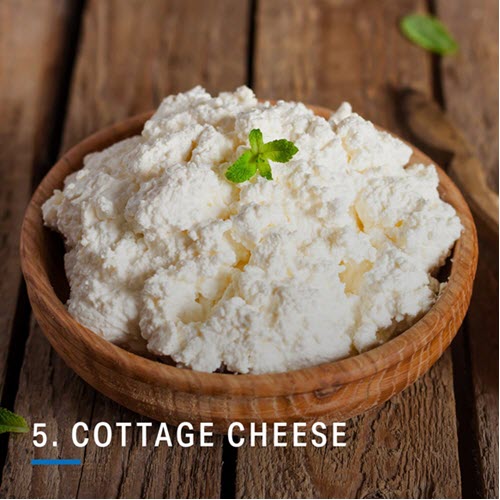
Many people opt for Greek yogurt when looking for high-protein dairy, but cottage cheese is also an excellent choice — one cup offers 24 grams of protein. Skip the 0% fat and go for 2%, which helps you feel more satiated. You can also minimize added sugar by looking for unsweetened versions and then add in your own toppings like fruit or nut butter.
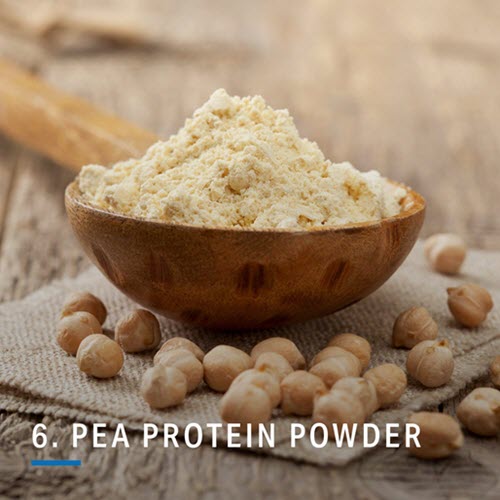
If you’re vegetarian or vegan and looking for another option, pea protein is ideal for using in smoothies. Made from yellow peas, a serving (one scoop) of pea protein powder boasts 24 grams of protein, zero saturated fat and is an excellent source of iron (35% of your daily requirement).
